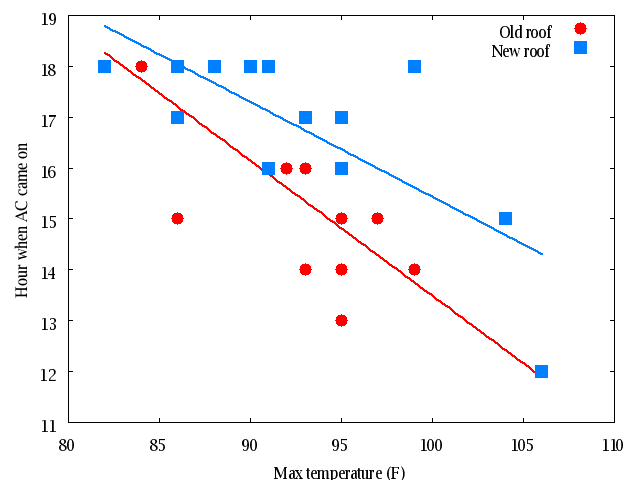Should libraries cover “all points of view”?
October 19th, 2012 at 10:55 pm (Library School)
This week in my “Information and Society” class, we’re tackling the topic of censorship. We were assigned to write a post about “what intellectual freedom changes and challenges do you see yourselves facing in your jobs and in libraries in general in the years ahead?”
Whether or not I am ever in a position to make selection decisions for a library, I expect to continue as a library user for the rest of my life. Consequently, library policies about their selection choices will affect me and my access to ideas and materials. Therefore, I am concerned by the gap between ALA-espoused ideals and actual library practice, with respect to censorship.
The ALA Library Bill of Rights states that “Libraries should provide materials and information presenting all points of view on current and historical issues.” The absolutist wording immediately gave me pause. “All” points of view? Regardless of merit, factual support, benign or malignant intent? Further, it implies that libraries must be encyclopedic; they have a responsibility for thorough coverage of all angles.
However, libraries in practice commonly violate this stated policy. Because they cannot realistically purchase every book in existence, they develop selection criteria. These commonly include authority, appropriateness, timeliness, accuracy, quality of the physical book, fit with the collection, and demand. Some of these criteria, such as authority, appropriateness, accuracy, and demand, curtail the provision of “all” points of view. While I personally appreciate the library’s effort to filter based on properties such as authority and accuracy, not everyone feels that way, including the ALA, given its wording in the Library Bill of Rights.
One of our (written) lectures, composed by Laura Reiman and Ellen Greenblatt (our course instructor), provided a fascinating walk through the history of censored material with LGBTQ elements. They concluded with this statement: “however much these parents and citizens would like libraries to stand in loco parentis as guardians of what children and young adults should read, this is clearly not the school or library’s role.” This argument is used to justify the library’s retention of items that individual parents do not want their children to see. Yet by the same argument, the library should therefore allow the donation and retention of all materials, no matter how biased or offensive, including the “ex-gay” and “gay cure” literature donated to a library in Fairfax, VA in 2008. Instead, the Fairfax information services coordinator rejected such books on authority and accuracy criteria, as well as a concern about possible negative impacts on LGBTQ students. While I find such content to be appalling and offensive, and I am in complete agreement with the motives for rejection, they are inconsistent with the Library Bill of Rights.
More generally, do we have an obligation to provide access to all materials, no matter how negative, hurtful, or inaccurate? Beyond the Library Bill of Rights, constitutional law suggests that we do. Board of Education vs. Pico (1982) established a link between the right to read (access) and the right to speak. “Illegal speech” (therefore not protected as “free”) includes “defamation, incitement, obscenity, and pornography produced with real children”. Many materials, including the “gay cure” literature, do not fall into any of these categories, so it is not clear that there is any constitutional basis for avoiding them, no matter how distasteful.
I am left with a question: Are librarians throughout the U.S. simply unable (due to community or other pressures) to adhere to this policy, or is the ALA Library Bill of Rights not a truly representative statement of the library community’s views? Aiken surveyed 400 public library directors and found that 50.9% of the 110 respondents “did not permit free access for minors to nonprint materials,” violating the Library Bill of Rights. Aiken concluded that “the ALA appears to be alarmingly out of touch with many of its members.” This seems to be a worrisome state of affairs!
 When the contractor tore off my old shingles to replace my roof, they found that underneath were the original wooden shingles. California code no longer permits wooden shingles (fire hazard!), so these had to come off, too. But the wooden shingles were laid on slats with 6-inch gaps between them, so that meant I also needed a layer of plywood put down to support the new shingles. California code (at least in my town) also requires that this plywood be
When the contractor tore off my old shingles to replace my roof, they found that underneath were the original wooden shingles. California code no longer permits wooden shingles (fire hazard!), so these had to come off, too. But the wooden shingles were laid on slats with 6-inch gaps between them, so that meant I also needed a layer of plywood put down to support the new shingles. California code (at least in my town) also requires that this plywood be 


 Not so any more! I asked my teacher if I could learn some fiddle technique, since she also plays fiddle music. She immediately recommended “the only fiddle book you’ll ever need,” which turned out to be “The Craig Duncan Master Fiddle Solo Collection.”
Not so any more! I asked my teacher if I could learn some fiddle technique, since she also plays fiddle music. She immediately recommended “the only fiddle book you’ll ever need,” which turned out to be “The Craig Duncan Master Fiddle Solo Collection.”